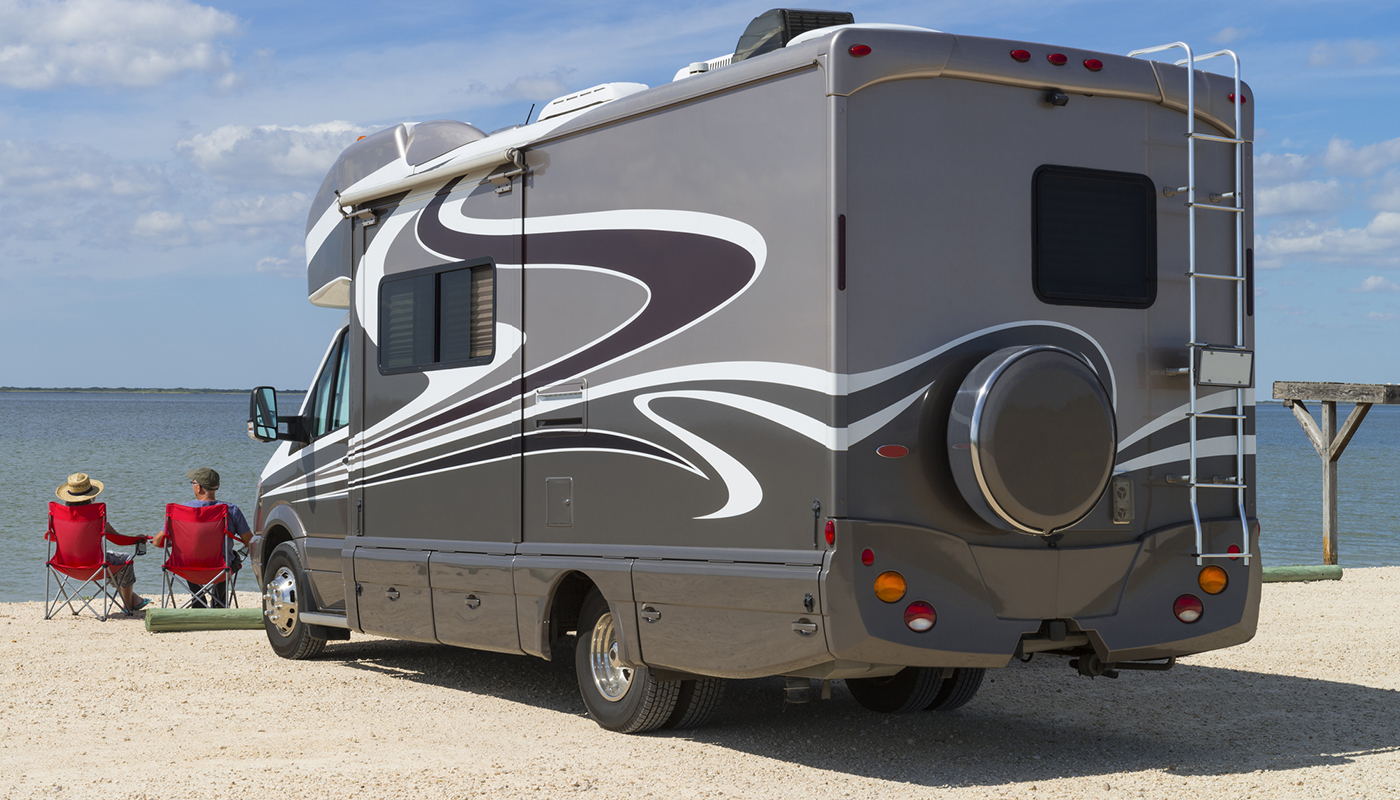Your Guide to Understanding Car Insurance
Learn about the types of car insurance coverage, factors to consider when choosing coverage and ways to help lower your insurance rates.
 iStock
iStock
Any person who gets behind the wheel of a vehicle and drives in the United States is required to have car insurance. This is because car insurance helps provide financial protection in the event that a driver’s actions cause damage to another car, person or property.
Drivers have an array of choices when it comes to auto insurance coverage. This guide will help you understand the types of car insurance coverage available, what factors to consider when choosing auto insurance coverage and how to identify the best insurance rates.
What Is Car Insurance?
Car insurance is a product a driver purchases to provide financial protection. It helps to cover the costs associated with injuries and repairing damage to vehicles and property in the event of a crash, theft, natural disaster or vandalism.
The 6 Basic Types of Car Insurance Coverage
As a driver, you can select from various types of protective auto insurance coverage based on your driving history, needs and budget. Each option has specific coverages and exclusions, so be sure to speak with your AAA Insurance agent to help find the right policy for you and your family.
Here’s a look at six of the most widely used car insurance coverage types:
- Liability Insurance: If you’re involved in a crash, liability coverage helps to protect you from the costs associated with injuring another driver or damaging another automobile.
- Collision Coverage: If you collide with another vehicle or an object (tree, pole, building, structure, etc.), collision coverage helps to cover the cost of repairing damage to your car.
- Comprehensive Coverage: If there is a theft, natural disaster, animal hit or damage to your vehicle from vandalism, comprehensive coverage helps to cover the repair costs.
- Personal Injury Protection (PIP): PIP helps to cover medical expenses for you and your passengers.
- Underinsured/Uninsured Motorist Coverage: This coverage helps to protect you if you’re involved in a crash with another driver who doesn’t have auto insurance at all, or who has a policy that doesn’t cover the extent of the damage.
- Extras, Add-ons and Optional Coverage: Optional coverage may include Property Damage Liability Coverage, which helps protect you if you cause damage to another person’s property as the result of a crash. You can also purchase Guaranteed Asset Protection (GAP) Insurance to help cover expenses if you’re in a crash and your vehicle is declared a total loss. In addition, many insurers provide the option of purchasing coverage for extras like towing and rental cars. Speak with your insurance agent to make sure you have all applicable vehicle coverage.
You need car insurance, but you don’t need to overspend to get great coverage. Get tips on ways to save on your policy.
Read More iStock
iStock
2 Things To Consider When Choosing Auto Insurance Coverage
While the type of auto insurance coverage you choose is ultimately a personal decision, there are factors that will impact the insurance rates. Here are two things to consider when choosing the right auto insurance coverage:
- Vehicle Cost: The cost of your car, as well as the make and model, will impact the type of auto insurance coverage you’ll want. The more expensive the vehicle, the more you’ll spend on repairs and maintenance, which means you’ll likely spend more to insure it. For example, a sports car is typically more expensive to insure than a minivan.
- Policy Details: Whether you’re comparing quotes from various insurance providers or a renewed policy to the previous one, make sure you’re conducting an apples-to-apples comparison. This means checking that the limits and items covered are the same from policy to policy. You can start by reviewing the auto declaration page, which is essentially a summary of the policy, including coverage limits, deductibles, discounts and other pertinent details. But be sure to read your entire policy from the first page to the last.

What Is a Car Insurance Deductible?
An insurance deductible is the amount you pay out of pocket before your coverage kicks in. Typically, the higher the deductible, the lower your premium will be. The opposite is also true: the lower your deductible, the higher the premium.
How Do Car Insurance Premiums Get Calculated?
There are several factors that impact the rate you pay for your auto insurance premium. Calculations are based on factors that include:
- Your Driving History: Insurers will look at how long you’ve been driving and your driving record (including traffic violations, crashes and claims).
- Your Location: Insurance regulations are different from state to state. In addition, some areas have more incidents of crime or heavier traffic, and those things can influence rates.
- Your Vehicle: Your car’s make and model have an impact on premiums because vehicles that are more expensive to buy are usually more expensive to repair and replace.
- Your Type of Coverage: Different coverage types have different costs. Liability coverage is typically the least expensive, and comprehensive insurance and collision insurance are usually more expensive.
- Your Miles: If you don’t drive much or frequently, you could get a lower premium than a driver who logs a lot of miles each month.
How Can I Lower My Car Insurance Premium?
There are several ways to lower your car insurance premium. Here are four tips from AAA Insurance:
1. Maintain a Good Driving Record: Your history behind the wheel matters. If you have a track record of speeding, tickets, crashes or unsafe driving, you will likely be looking at higher premiums than you would if you maintained a good driving record.
2. Bundle and Save: If you bundle your car insurance with your homeowners or renters insurance, you’ll typically save on premiums. And if you pay for your premium in full, there’s also usually a discount.
3. Use a Driving Monitoring System: Many insurance providers offer an app that monitors your real-time driving habits (speed, stops, etc.) and rewards good driving. AAA Members can use AAADrive (not available in Colorado, North Carolina or South Carolina) to see if their driving score gets them a discount.
4. Shop Around and Compare: Not all insurance policies are created equal. Shop around to make sure your rate and coverage are the best they can be. AAA Car Insurance agents will work with you to find the right policy based on your driving needs, type of vehicle and budget.
Ready to renew your car insurance? Consider the factors that could impact your rate.
Learn More iStock
iStock
Other Types of Car Insurance
Insurance coverage for your everyday vehicle isn’t the only type of policy to consider. Here are three additional ways insurance through AAA can help you protect your other vehicles.
Auto Insurance for RVs
Recreational vehicles (best known as RVs) are a family favorite for road trips. Their roomy and amenity-rich design makes traveling from state to state a dream. What can become an unwanted obstacle is not having the right insurance coverage in the event of a crash, accident, theft or natural disaster. RV insurance through AAA can provide the right policy for your travel plans and budget, so you can embark on your adventure with confidence.
Auto Insurance for Motorcycles
If you enjoy riding on two wheels, AAA makes it possible to take to the open road with peace of mind. Motorcycle insurance through AAA is designed to help cover your bike, other riders and expenses in the event of a crash. Learn more about motorcycle insurance through AAA.
Auto Insurance for Vintage Cars
While you may not take your vintage car or classic car for a spin every day, it’s important to have adequate insurance coverage in the event of an incident, theft or crash. In the same way that conducting regular and preventive maintenance on your vehicle is vital to keeping it running smoothly, insurance keeps your vehicle protected. AAA Car Insurance can provide the right policy for your collectibles.
Speak with a AAA Car Insurance agent to learn about the requirements for vintage car insurance, including usage and driving frequency limits, mileage, and storage requirements.
Invest in the Right Car Insurance Policy With AAA
One of the benefits of AAA Membership is enjoying significant savings on an array of products and services, including car insurance. There’s also something to be said for great service, and our AAA Car Insurance enjoys a 94% satisfaction rate* from customers!
Connect with a AAA Car Insurance agent to learn about coverage options, filling coverage gaps, policy prices and more.
*94% Satisfaction with AAA Auto Insurance. Satisfaction percentage was calculated based on a 2022 survey of new auto insurance customers scoring the Auto Club Group an 8, 9, or 10 out of 10 on overall satisfaction with their recent insurance purchase experience.
Coverage is subject to all policy terms, conditions, exclusions and limitations. Discounts and savings opportunities subject to eligibility requirements. Subject to underwriting requirements. AAA Insurance is a collection of AAA branded insurance products, services, and programs made available to qualified members. Personal lines insurance is underwritten by Auto Club Insurance Association, MemberSelect Insurance Company, Auto Club Group Insurance Company, Auto Club Property-Casualty Insurance Company, The Members Insurance Company, Universal Insurance Company, Auto Club South Insurance Company, or Auto Club Insurance Company of Florida. ©2024 The Auto Club Group. All rights reserved.